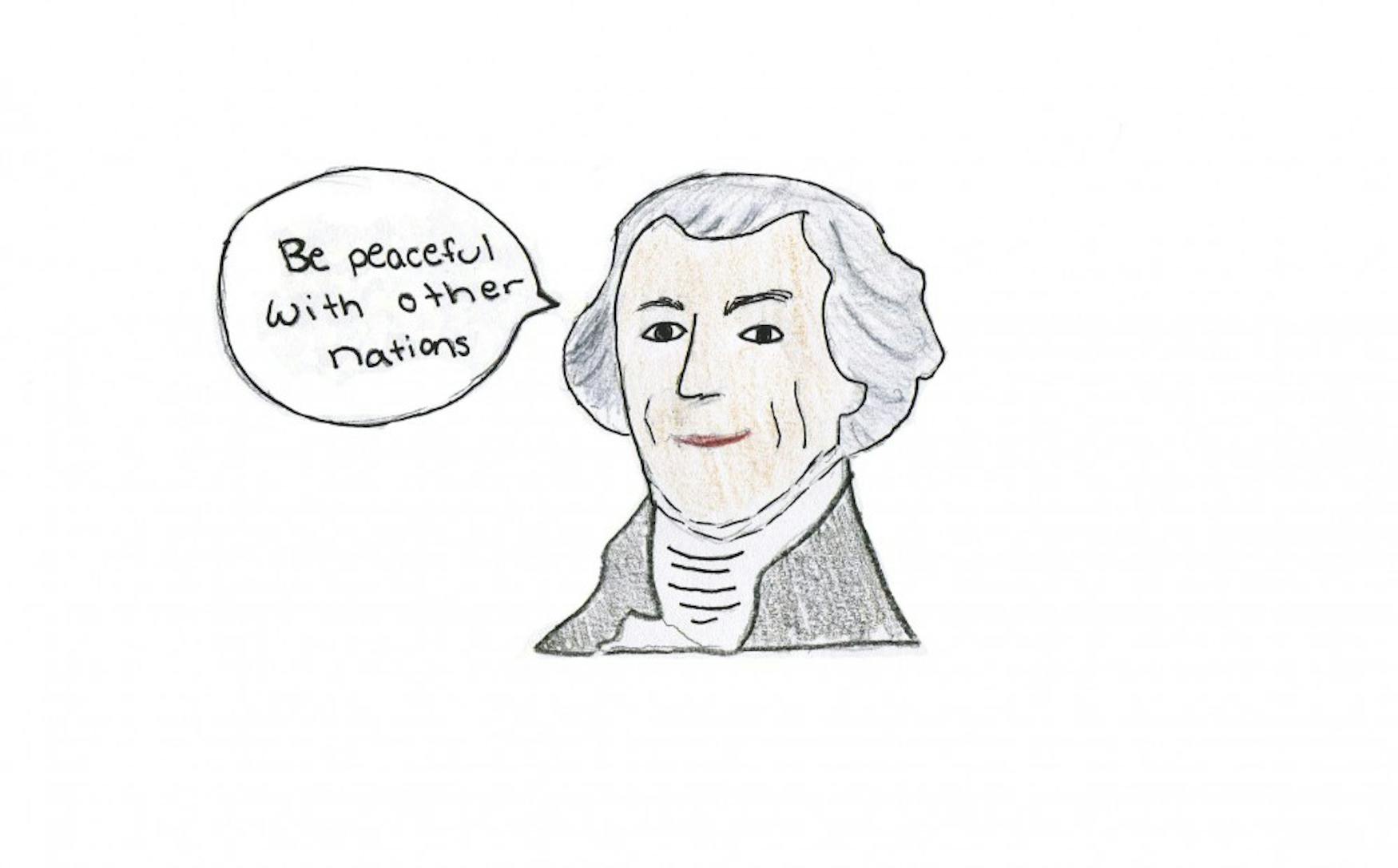Global politics shouldn’t serve one particular interest
President Thomas Jefferson once stated that one of the original aims of the United States was to be peaceful with other nations, “entangling alliances with none.” Those who know U.S. history will know that the U.S. avoided foreign entanglements for a long time. But from the 1930s onward, this way of life was to be no more. From the Great Depression and the Dawes and Young Plans, to modern day administrations, the U.S. has fully embraced its position as good old ‘Uncle Sam’ for the world, attempting to force its ideas and beliefs on the world — sometimes for better, sometimes for worse. Yet, no administration has adopted this approach quite as literally and directly as the administration currently in the White House, and nobody quite as personally as the current Commander in Chief.
The New York Times put it best when they described the interaction between the U.S. and Denmark over the summer as starting like “something out of The Onion,” and indeed, it did actually start as a joke. Trump began to express serious interest in the territory in part because of its abundance of natural resources like coal and uranium, alongside its potential for national security — its proximity to the United States puts it in a prime position for such a use. In particular Trumpian fashion, he asked if the United States could purchase the territory, and Denmark promptly replied, “No.” So Trump responded by branding the Danish Prime Minister “nasty,” a favorite insult of his. The whole ordeal created a spat between the U.S. and a close ally and fellow member of the North Atlantic Treaty Organisation (NATO).
Speaking of political spats between longtime allies and the Trump administration, my own home country of the United Kingdom has found itself subject to U.S. brute force a la Trump. I’ve heard plenty of hot takes from home and abroad about London’s own precarious political situation, but the current one involves open doors for new opportunities. It’s worth remembering that the U.S. does not currently have a trade deal with the European Union, so of course Trump sees an opportunity for a new Special Trade Relationship — under which he told the British press that the National Health Service (NHS), Britain’s state run health service, would be on the table in negotiations — that is to say, NHS services could be up for privatization under U.S. firms. He quickly backtracked in a television interview with Piers Morgan, seemingly in response to failing to realize the importance of the NHS to the British people and how little we wanted it privatized. Plus, who can forget Trump’s “diplomacy by Tweet” tear-down of Theresa May and subsequent support of Boris Johnson. I wonder why. Perhaps because of Boris’ “do or die” commitment to Brexit by the end of October, and the opportunities that creates for Trump and his diplomatic conquest.
It’s on this last point that I take serious issue with the current administration. America has been attempting to push its ideals onto the world for decades, from pushing to buy Greenland to pushing for the independent red, white and blue land. Trump takes such an issue with the EU because it acts as a block through which several nations can make their position known to the rest of the world — after all, there is strength in numbers. Greenland would present a substantial resource for the U.S, hence Trump’s obsession with purchasing it. The ongoing trade spat with China, in my view, has nothing to do with protecting U.S. work, but protecting U.S. interests — to concede is to demote America’s place in the world. And frankly, it has got to stop.
The world has moved considerably away from the days of nation unto nation, domination on domination. In the world of modern day problems, Trump would do well to stop isolating the U.S. from the rest of the world and trying to exert U.S. diplomatic muscle over other nations, but to instead come to terms with the diverse world that exists today. Instead of dismissing the EU, work with it to create an alliance to tackle the challenges facing the planet: climate change (although we have a whole other issue on that front), the impending threat posed by nuclear war and, yes, even trade. It’s time to end this reckless kind of diplomacy that will only harm the U.S. in the long run. There is no place in the world today for the return of Uncle Sam and his upperhand approach to other nations, pushing them the way of the United States.
And let’s be clear — the U.S. has political might. Since the days of dollar imperialism through to the world as we know it today, where domination can come in lots of different flavors, from technology to simple foreign policy. Nobody is saying the U.S. doesn’t have political might, but the question is whether they should be using it. I say categorically that the time has come to start using it responsibly, to start using it in a way to create real change in the world, rather than amassing more power. Quite frankly, the U.S. already has plenty of it. Think of the potential that could be harnessed if used properly. Instead, the U.S. continues to pursue what can only be called expansionism, both in terms of land and in terms of soft power. The time has come for a total shift of ideas and policy; though something tells me we could be waiting a while.
And you should trust me. I know a thing or two about countries believing they have more power than they do. I’m British.



Please note All comments are eligible for publication in The Justice.